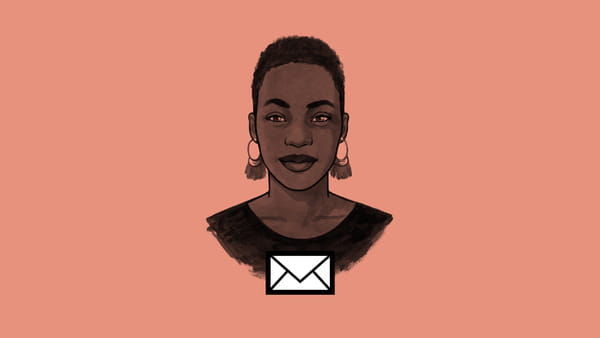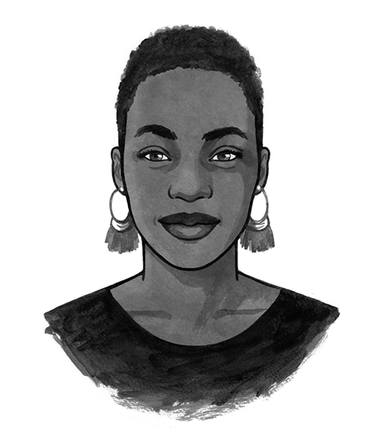Hi,
It’s already 10 January, so getting a bit too late to say happy new year, but as this is the first time you lovely subscribers have heard from me this year, I’m taking liberties. Happy new year! *tosses confetti in the air*
I don’t make new year’s resolutions any more, but I definitely take advantage of the psychological break (and the break from work, to be honest) that the turn of the year offers. During the quiet days between the last decade and this one, I thought about what plans I could make to optimise my satisfaction with the work I publish here, as well as things I’d like to do to increase my general enjoyment of myself, my relationships, and other creative pursuits.
Perhaps unsurprisingly, more reading was pretty high up on my list. If you’ve been following my newsletter (and my beat, in fact), you’ll know that reading is very important to me. But I don’t read nearly as many books as I would like, because I’m rarely deliberate about the books I do want to read. This is why I love The Other Shelf, the transnational book club I started here at The Correspondent, so much. It gives me an opportunity to plan my reading, discover books I might never hear about otherwise, and get paid for it. Clearly, I must have been on Santa’s "nice list" to have got so lucky.
This year, The Other Shelf is getting off to an exciting start. Among the Yoruba, we have a new year greeting that goes: "Odún á y’abo o." It translates to "may the year lay eggs", and it is a prayer that the new year will be fertile, fruitful and productive. It’s completely coincidental that my first book selection of the year for The Other Shelf focuses on pregnancy and childbirth, but it’s a delightful coincidence, isn’t it?
In my callout, I explained how I made the progression from an exploration of death to an interest in the process of giving life:
"As part of my investigation into the possibilities that death presents for highlighting shared life experiences, I became interested in the types of deaths that can be reduced to simple statistics. If death can provide insights into structural discrimination, perhaps we can also glean some knowledge from people’s experiences of bringing life into the world."
Having gone over the recommended books, I’m pleased to announce the book of the month, Brianna Theobald’s Reproduction on the Reservation: Pregnancy, Childbirth, and Colonialism in the Long Twentieth Century. I chose this book because it takes a long-term look at reproduction and reproductive justice and analyses these issues in the context of deliberate socio-political exclusion.
The book highlights the creative ways that Crow women and families in Montana, USA, navigated the pregnancy and birth-related injustices that were forced on their community. I think the insights offered by the book can help readers better understand many of the manifestations and consequences of structural discrimination and social injustice.
I’ve ordered my copy already, so now I’m keeping my fingers tightly crossed that my luck from the last time around will hold and I’ll receive my copy in just a few days. I must say, however, that even though this callout didn’t generate anywhere near as many responses as the first one, I still had slight difficulty making my book selection.
I was very intrigued by Where’s the Mother?: Stories from a Transgender Dad, written by Trevor MacDonald. Being endlessly curious about human experiences that are departures from the norm or even delegitimised in the mainstream, MacDonald’s story was immediately appealing to me. But as I considered it a bit more, I became uncertain of my ability to properly steer a conversation around a trans man’s experience of pregnancy, birth and parenthood.
Thanks to my feminist politics, I’m often pulled into conversations about gender and womanhood in particular. As a result, I’ve done a fair amount of reading and writing on inclusive, respectful and responsive understandings of gender. As you might imagine, these interventions tend to focus very much on cis and trans women.
I believe that the physical, social and psychological safety of marginalised people, including trans men, matters more than intellectual experiments. This belief is a big part of what influenced my decision not to pick MacDonald’s book for a public discussion that could potentially go in disrespectful directions. I will get a copy of the book for my personal library, though, and I encourage you to do the same.
Besides the book club, I don’t really have many definite plans for my beat in 2020. Unlike some of my colleagues, I haven’t quite figured out how to make the most of the expertise and interests of our member-readers, which is why I’m looking forward to building greater rapport with you all this year. In the meantime, please tell me what important or overlooked issues you think I should explore more deeply over the next 12 months.
PS. Here are all the books that were suggested for our exploration of pregnancy and childbirth:
Bump – Kate Evans
A Life’s Work – Rachel Cusk
Expecting Adam, a True Story of Birth, Transformation and Unconditional Love – Martha Beck
The Alexander Technique For Pregnancy and Childbirth – Mel Hampson and Britta Forsstrom
Where’s the Mother?: Stories from a Transgender Dad – Trevor MacDonald
Do Chocolate Lovers Have Sweeter Babies? The Surprising Science of Pregnancy – Jena Pincott
Expecting Better – Emily Oster
Motherhood – Sheila Heti
The Rules Don’t Apply – Ariel Levy
Expecting: the Inner Life of Pregnancy – Chitra Ramaswamy
Panic Free Pregnancy – Michael Broder
Till next time,
 Want to receive my newsletter in your inbox?
Follow my weekly newsletter to receive notes, thoughts, and questions on the topic of Othering and our shared humanity.
Want to receive my newsletter in your inbox?
Follow my weekly newsletter to receive notes, thoughts, and questions on the topic of Othering and our shared humanity.

